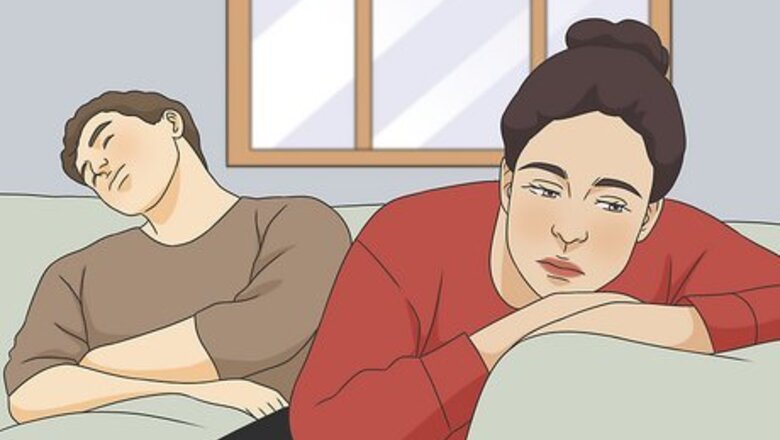
views
- If you're not attracted to your husband, identify the core issue. Consider what has been pushing you away from your relationship and what you need going forward.
- Talk to your husband, but do it gently. Use “I” statements to discuss what you need rather than what he needs to change.
- For example, you could say, “We haven’t had much quality time together lately. I would appreciate planning at least one date night a month.”
Why You’re No Longer Attracted to Your Husband
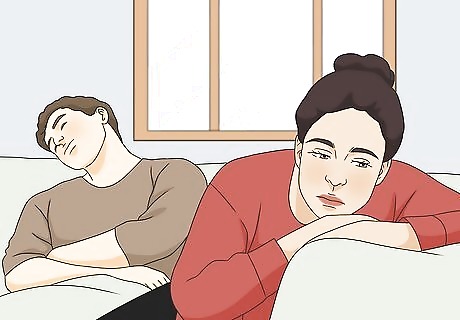
Your relationship has become predictable. If you and your husband have been together for a long time, you may have grown bored in the relationship. New relationships come with novelty and excitement, and it’s normal for those things to wear off as time goes on and your relationship becomes more stable. However, more security and predictability in your relationship may leave you feeling less interested in your husband. “Once people have been together for a very long time,” explains psychologist Chloe Carmichael, “that sense of attraction can fade because they’re so merged…it's just so extremely familiar, and it might not feel exciting anymore.” Feeling bored in your relationship can actually be a sign that your partnership is healthy—but that doesn’t mean you can’t work on spicing up your marriage.
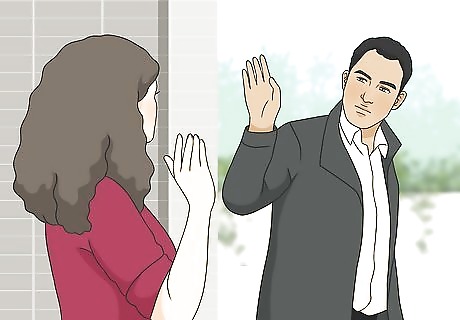
You spend little quality time together. Investing in quality time together and caring for each other's non-physical needs can create a better sex life and more marriage satisfaction. You are more likely to think positively about your relationship and feel closeness with your husband. Conversely, if you don’t spend regular quality time with your spouse, you may feel disconnected, and attraction may fade. Quality time isn’t just any time spent together: it’s intentional time where you empathetically and actively attend to each other's needs.
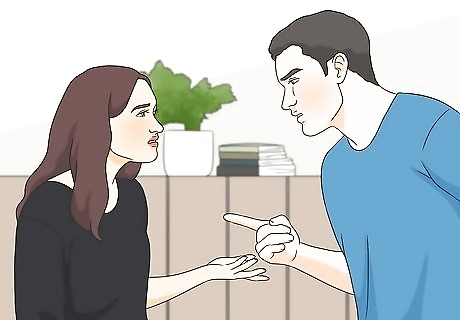
Your negative interactions outweigh your positive ones. If your husband is constantly critiquing you or you’re frequently getting into arguments, those negative interactions will likely impact your level of attraction. Research shows that successful marriages require at least five positive interactions to counteract every negative one. If your interactions as a couple are mostly negative, it’s almost unavoidable that you will encounter intimacy and attraction problems.
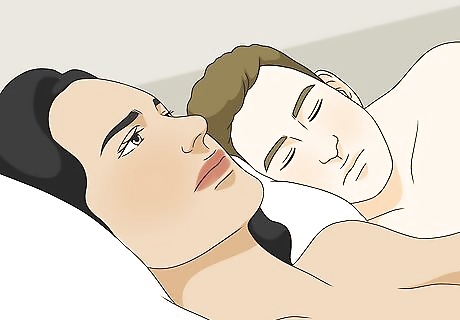
You haven’t developed non-sexual intimacy. Sexual intimacy is important, but other forms of intimacy matter just as much—especially in a long-term relationship. Without these, you won’t have a strong foundation for sexual intimacy or attraction. Mental Intimacy develops from learning new things together, like taking a drawing class or having an intellectual debate. Emotional Intimacy develops from discussing your deepest thoughts, fears, and desires—ask your husband open-ended questions like “When you're feeling stressed, what's the best thing I can do for you?” Experiential Intimacy develops from working as a team to complete an activity, such as a shared hobby or home improvement project.
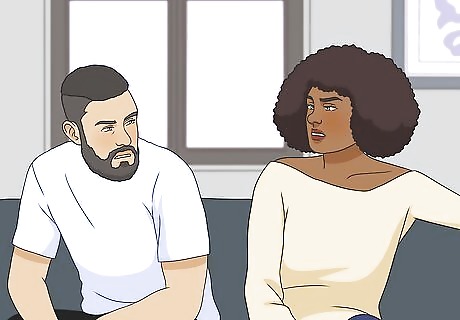
You aren’t communicating well. Without healthy and honest communication, it’s difficult for you and your husband to understand each other’s needs and desires, whether in bed or in your daily life. Not feeling heard or understood in your relationship makes it hard to feel secure and comfortable, causing a lack of attraction and rifts in the relationship. Professional counselor Tara Vossenkemper names communication as the biggest obstacle she sees in marriages, describing how people often talk around the real issue. Vossenkemper says that, in many cases “people cannot talk effectively about what their problems are.” For example, someone might say to their partner something like, "Why don't you ever do the dishes? Why am I always the one to do the dishes?” Focusing on the dishes, continues Vossenkemper, is “different than...saying, I am really, really exhausted. I'm feeling kind of resentful about this. The weight of this burden does not feel equally distributed. Can you help me fix this?”
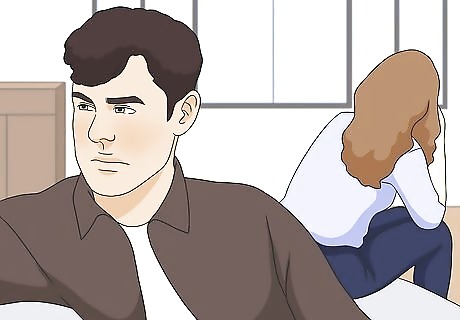
You’ve grown apart after a conflict. After an argument, there may be lingering feelings of anger, resentment, or broken trust. Leaving such feelings unresolved can lead to distance between you and your husband. Naturally, you may not feel particularly attracted to your spouse when you’re still feeling hurt or misunderstood.

You no longer feel physically attracted to him. When most people feel a loss of attraction to their husband, they assume it’s because of his physical appearance. You may have lost the romantic and sexual chemistry that you used to have, or you may no longer be attracted to them based on changes in their body or appearance. However, it’s important to note that everyone’s body changes as they age. It’s also normal to experience dry spells in a relationship, especially if you’ve been together for a long time or your lives have become very busy. Often, these shifts in physical attraction stem from something deeper, which is why it’s so important to fully examine all the potential reasons that you may not be attracted to your husband.
What to Do When You’ve Lost Attraction
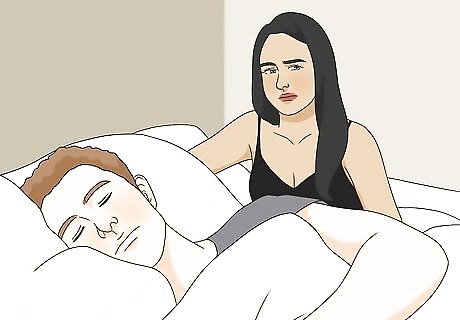
Recognize that you’re not alone. It’s normal to lose some physical attraction to your husband throughout your relationship. Many people struggle with loss of attraction to their spouse at some point in their relationship, but it doesn’t mean your relationship is doomed. Women, in particular, have been shown to lose attraction more often than men when in a long-term relationship.
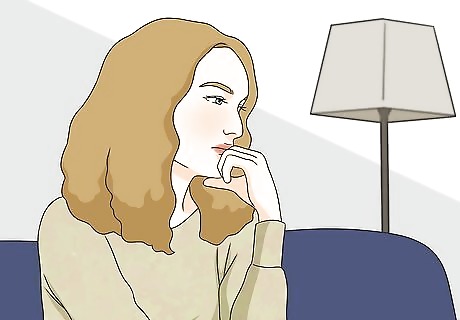
Take time to understand the core issue. Even if you feel a loss of physical or sexual attraction toward your husband, it may stem from an unrelated issue. For example, you may be struggling to communicate with your husband or feeling like they don’t make time with you, both of which can cause intimacy issues. Self-reflect. Think about your relationship and how you’ve been feeling. Do any of the common reasons for loss of attraction resonate with you? Once you understand why you’re feeling turned off by your husband, take time to process your new realizations before taking action. Think about how you want to manage this issue and how you want to present it to your spouse.
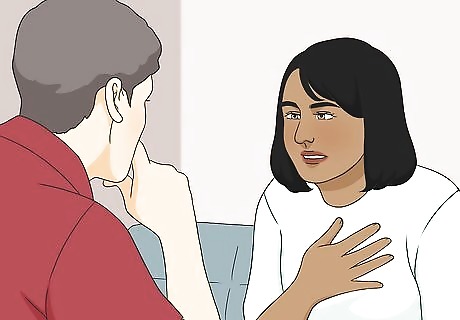
Bring up your needs to your husband. Approach this conversation kindly, empathetically, and without any confrontation. Ask your husband to set aside time for you to talk in private without any time constraints. Begin the conversation by restating your love and commitment to the marriage. Tell your husband what you need, not what he should do differently. Use “I” statements and focus on how you two can solve these issues as a couple. For example, say, “We haven’t been spending much quality time together lately. I would appreciate having at least one date night a month, just the two of us.” Licensed counselor Tara Vossenkemper emphasizes the importance of “I” statements, explaining that “a “you” statement is going to get the defensiveness…which doesn't mean to never say “you.” But we're not using you in an accusatory way.”

Frame your concerns non-judgmentally. If your concern is directly related to something about your husband’s lifestyle that you don’t like, proceed with caution. Sensitive topics, like weight gain or mental health, should be handled with kindness and care. Remember that your husband is human, and is likely to change and go through highs and lows during your relationship. Often, sensitive topics can be reframed as concerns rather than being judgemental or focusing on your lack of interest in your husband.
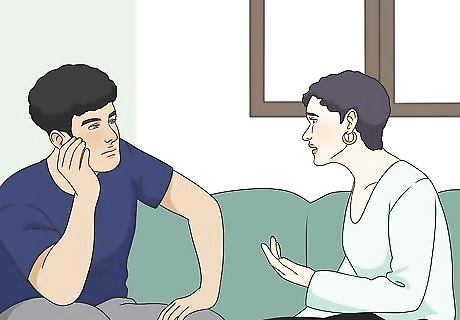
Tackle one problem at a time. Start with just one issue you see in your relationship or one thing you need from your husband. If you start listing off 50 different problems, it may come across as nitpicky or overwhelm your husband. He may also become defensive, and you’ll end up right back where you started. Remember that major conflicts aren’t going to be solved by just one conversation. Ongoing communication and a mutual commitment to improving the relationship are crucial in rebuilding your attraction and strengthening your bond.
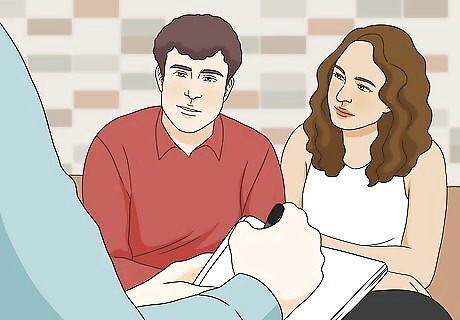
Attend couples counseling for expert support. If you have serious concerns about communication, empathy, or intimacy in your relationship and are struggling to bring it up or resolve them with your husband, seeking the help of a therapist is a good place to start. Couples counseling can be a great tool for any couple, whether or not they’re currently facing challenges in the relationship.

See a doctor if you have concerns about your libido. If everything else in your relationship seems fine, there may be a medical reason for you or your husband’s lowered sex drive or attraction. Clinical psychologist Chloe Carmichael recommends this step to rule out “low testosterone or some kind of chemical issue that is holding back your libido.”
How to Rebuild Attraction to Your Husband

Prioritize spending time together. Whether you’re doing things you love or discovering new interests together, build time into your schedules to spend intentional time together. “Try to make time for having fun together,” advises counselor Tara Vossenkemper. Vossekemper continues, “There are couples who really bond by hiking, there are couples who bond by cooking…find something that works for the two of you as a couple.” Quality time spent together also involves sharing about your lives and feelings and connecting over them during your time together. Try sharing more with your husband and encourage him to do the same. Vossenkemper recommends sharing your feelings about “something you have going on in your life, a work relationship, a friendship, or even something intellectual like ‘I read this article the other day and thought it was really interesting.’”
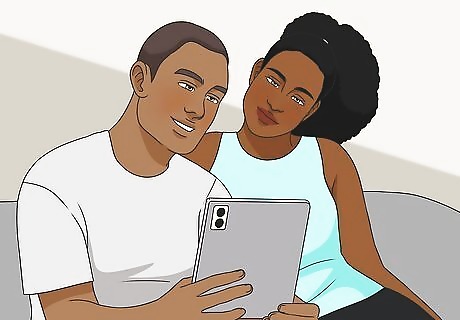
Create a sense of novelty. If your attraction has slowed because your relationship no longer feels exciting or new, make time for new experiences in your marriage. Clinical psychologist Chloe Carmichael gives some tips to spice things up, like something as simple as “going to a new restaurant or doing a getaway for a weekend and going somewhere new.” Doing other new things like “taking a class together where you’re both learning something new” can be another simple activity to change things up, according to Carmichael. To add even more adventure into your long-term relationship, Carmichael recommends “pretending that you’re picking up your husband or wife for the first time…at a bar.” It’s helpful to see your husband through fresh eyes, so Carmichael also advises “going on double dates…to see the other couple relating and talking to your spouse and getting to know them and see them with fresh eyes.”

Improve your communication. Open and honest communication increases emotional intimacy between couples, which can lead to increased attraction. Marriage counselor Tara Vossenkemper recommends a three-step approach to improving communication: learn your Four Horsemen, your conflict style, and how to say things effectively. Vossenkemper continues to explain “The Four Horsemen in communication...are criticism, stonewalling, defensiveness, and contempt…Learn about the Four Horsemen and do an honest assessment of which horsemen [you] use.” After assessing you and your husband’s horsemen, “Learn your conflict style…passive, passionate, or diplomatic.” As Vossenkemper advises, understanding your communication and conflict styles will help you and your husband understand how you approach issues together and how to improve. Lastly, Vossenkemper underlines the importance of learning “how to say things effectively” using “I” statements: “I feel angry, I feel upset, I feel sad, I feel x when y.”
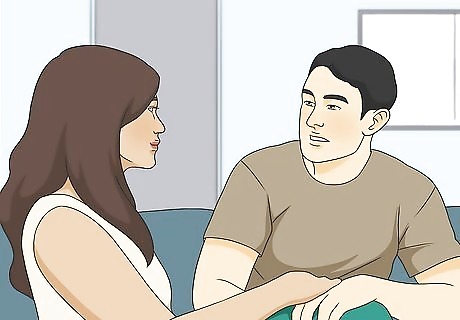
Practice active listening. Focus on what the other says and be open-minded to their feelings and opinions. Show that you’re actively listening by looking at your partner, leaning toward them, and nodding along as they speak. When one partner expresses a need, respond with an open-ended question so that they can expand on their statement. For example, you may say to your partner, “I understand that you need me to verbally reassure you more often. What moments do you most feel the need for support and reassurance?” Explicitly express gratitude and appreciation toward your partner when they’re making an effort to hear and understand you.
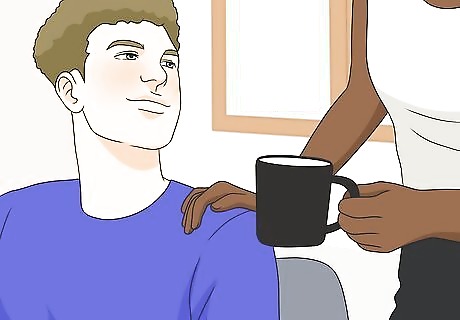
Build mutual respect. If you don’t feel respected by your husband, it isn’t easy to feel attracted to him. Gradually introduce more respectful behaviors into your relationship. If your husband struggles to honor your boundaries, ask him to work on that moving forward. Other ways to habitually show respect in a relationship include giving each other space when needed, supporting each other’s goals and passions, and acknowledging that you are individuals with unique needs and wants. Your husband putting more effort into your relationship will likely make him seem more attractive to you. Remember that respect goes both ways. Make sure that you’re honoring and upholding these respectful behaviors just as much as you're asking your husband to.

Focus on the positives in your relationship. Consider all the great things your husband does for you and all the things you love about him. Try gratitude journaling and list every sweet or affectionate thing your husband says to you or does for you. Resist comparing yourself to others. Avoid focusing on other couples and how they seem more compatible or exciting than you and your husband. Every marriage is different and has its strengths and challenges.

Revisit the early memories of your relationship. Sometimes, you need a reminder of how you felt in the past to help out your marriage in the present. Make a playlist of “some of the popular songs that you used to listen to together back when you were dating,” recommends psychologist Chloe Carmichael. Alternatively, Carmichael continues, go through old photos from when you first started dating and “have them framed and put them around the house.” These memories may remind you of why you were attracted to your husband in the first place and may also make your husband feel more connected to you.
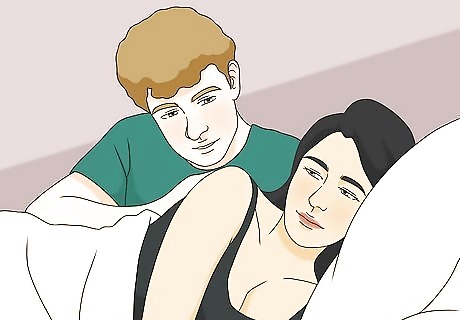
Plan times for maintenance sex. Maintenance sex is when a couple is physically intimate, even when they’re not really in the mood. Set aside times in your schedule where you can wholly focus on each other and spend time reigniting that spark. Maintenance sex may sound (and feel) unsexy at first. Eventually, however, it should encourage bonding and emotional intimacy in your relationship, leading to greater attraction and passion. Further improve your mutual sex drive by asking each other about yet-to-be-explored desires or fantasies they want to try. Licensed clinical psychologist Chloe Carmichael recommends choosing a “pornograph[ic] video and doing whatever they’re doing on screen.” This way, Carmichael maintains, you can try something new without “having to personally feel like you're suggesting some fantasy, and then your partner is going to read a lot into it.”
Understanding Romantic & Sexual Attraction

Romantic attraction is emotional, and sexual attraction is physical. Romantic and sexual attraction are not the same thing. Sexual attraction is mostly based on physical features. An instant spark or desire for physical contact stems from sexual attraction. Romantic attraction, on the other hand, makes a person desire a long-lasting and loving connection with another person. Romantic attraction is often expressed through affection and caring actions rather than sexual contact or arousal. Verbal expressions of adoration, quality time, acts of service, and meaningful gifts are all strong signs of romantic attraction. When it comes to marriage, the difference between romantic and sexual attraction is actually a good thing. Feeling like you’re not sexually attracted to your husband doesn’t mean you don’t love him anymore. You may still feel romantic attraction and need to rekindle the more physical spark between you.

You can also be intellectually or spiritually attracted to someone. Conversely, you can become unattracted to someone in any of these areas, which may impact your physical attraction. For example, you may have initially been spiritually attracted to your husband because your beliefs and values strongly aligned. If your husband's values change later on, you may lose spiritual attraction. Even though your husband looks the same, you may feel a loss of physical attraction because the spiritual and emotional attraction has gone away.
















Comments
0 comment